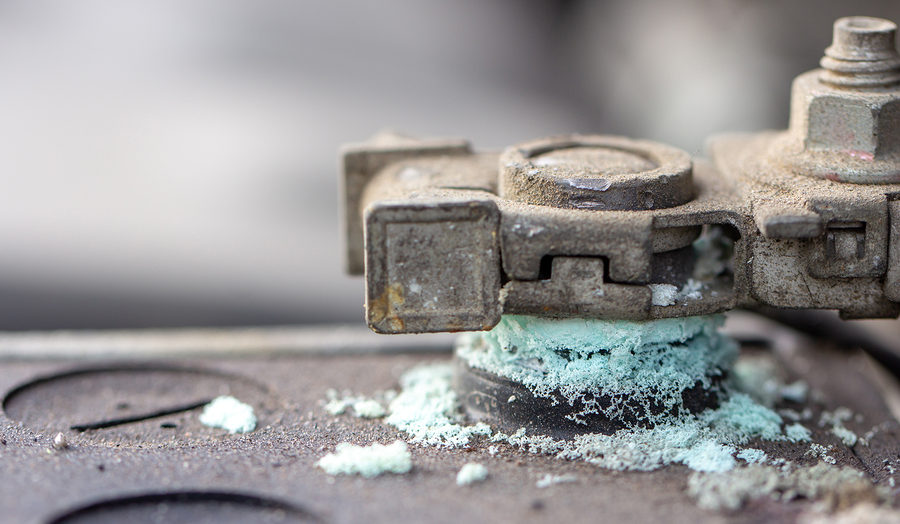Changing and replacing a car battery is common knowledge for most car owners, however, knowing what to do with a used car battery is not. There are several constituents inside a car battery that allows it to cooperate and function within vehicles. These same components are mostly chemical-based, and can be tremendously hazardous in various aspects.
Continue reading to learn why safe battery disposal is so important to us and our surrounding environment, and how to properly get rid of a used one.

The Importance of Proper Battery Disposal
Car batteries are not like other commodities that can simply be tossed away in the garbage with the rest of the trash. Car batteries contain several dangerous chemicals, materials, and heavy metals. For instance, a standard 12-volt car battery contains elements such as lead, plastic, sulfuric acid, and more. Diesel engine vehicles, like semi-trucks and tractors, may use a 24-volt system; requiring the use of two 12-volt batteries to operate.
This means double the toxins, chemicals, and heavy metals. Furthermore, these types of 12-volt car batteries are made with lead plates and lead dioxide plates, which are submerged in an electrolyte solution made up of sulfuric acid and water. The chemical reaction of the two elements creates electrons that let them pass through conductors, running electricity to the vehicle’s engine and inner components; but they are all extremely toxic.
You see, as a battery begins to lose its power, it is because the acid within the electrolyte solution has reacted with the plates, changing them from lead and lead dioxide, to lead sulfate. When a car battery is recharged, this same process is simply reversed. All these chemicals that make a vehicle’s battery function have proven useful in the automotive world, but they still need to be handled responsibility to protect ourselves and the environment from harm. One of the best ways to do this is by recycling used car batteries. It is the best and most responsible method to car battery disposal.
Automotive Battery Recycling
One unique aspect of automotive batteries is that they are almost completely recyclable. This means that nearly all of a battery’s components can be recycled and reused for new car batteries. For example, the lead is virtually one hundred percent recyclable, and can be melted down, filtered, and refurbished in new car parts. The plastic components are also completely recyclable and can be reused in other products. Surprisingly, the sulfuric acid can even be reused. It can be counteracted and purified to be released as uncontaminated water, converted into sodium sulfate (for fertilizers, dyes, etc.), or reused in new car batteries.
How to Recycle a Used Car Battery
To recycle a used car battery, simply take it to a local scrap metal recycling center that pays cash for used auto parts. Most scrap metal buyers will accept automotive batteries in all conditions, whether used, new, or broken. Not only will they accept batteries that come from cars, they will also buy batteries that come from any other type of motorized equipment, such as boats, motorcycles, tractors, bulldozers, cement mixers, and more. They will also accept all other auto parts and junk cars. Recycling an automotive battery is a great contribution to protecting our environment and preserving our natural resources.
Where to Recycle Junk Auto Parts in Indiana
Call Zore’s Inc. at 317-247-8484 to recycle auto parts in Indianapolis, Indiana. We have been a family owned and operated business for over 75 years, so you know you can trust us for the fairest prices and products in town! We also sell used auto parts, OEM auto parts, refurbished auto parts, and new auto parts. Request an estimate for any auto part, today.

